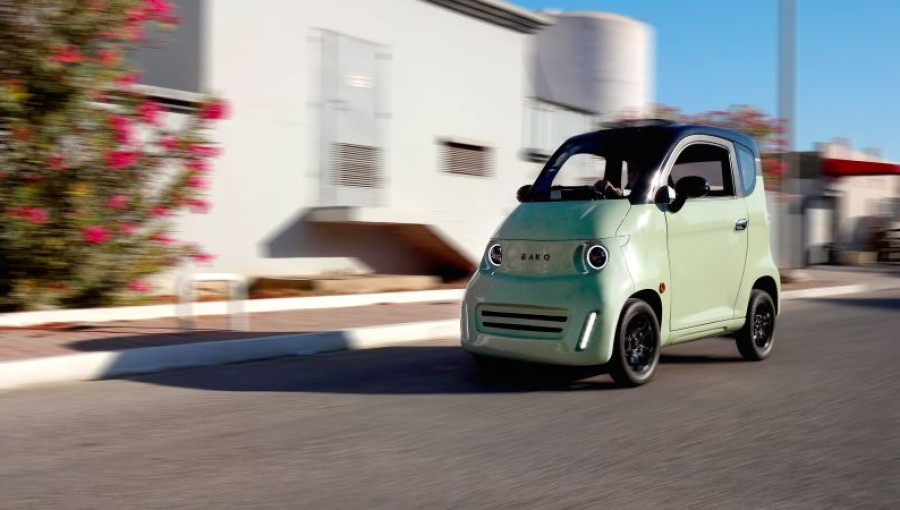Africa’s electric vehicle market is on the verge of significant growth, projected to soar to $4.2 billion by 2030, according to Mordor Intelligence. Among the notable players entering this space is Bako Motors, a Tunisian startup that is innovatively utilizing solar power to enhance its electric vehicles. With the introduction of compact cars and cargo vans equipped with solar panels, the company aims to provide an eco-friendly alternative by harnessing the continent’s abundant sunlight.
Founded in 2021, Bako Motors initially produced three-wheeled cargo vehicles but has since shifted to developing four-wheeled models. Its B-Van is designed specifically for logistics and last-mile deliveries and can carry up to 400 kilograms (882 pounds). It boasts a range of 100 to 300 kilometers (62 to 186 miles) and is offered at a starting price of 24,990 Tunisian dinar (approximately $8,500). Another vehicle, the Bee, serves as a compact two-seater ideal for urban commuting, with a maximum speed of 45 kilometers per hour (27 mph) and a range of 70 to 120 kilometers (44 to 75 miles), priced from 18,264 Tunisian dinar ($6,200).
Bako Motors’ CEO, Boubaker Siala, highlights the efficiency of their solar panels, stating that they can supply over 50% of energy needs, allowing for free travel up to 50 kilometers (31 miles) daily. The company has begun small-scale production, having built about 100 vehicles so far, with plans to increase production and start exporting in the near future. The firm is also sourcing more than 40% of its parts locally, contributing to job creation and demonstrating its commitment to boosting the local economy.
In a competitive landscape dominated by established brands like BasiGo and Spiro, Bako Motors distinguishes itself with its solar-powered models. The integration of solar energy addresses concerns over range anxiety by offering additional mileage beyond battery capabilities, potentially reassuring consumers about adopting electric vehicles.
Industry experts confirm the trend toward localized electric mobility solutions, emphasizing that varying transport needs across different African nations create opportunities for diverse market players. With Bako Motors currently constructing a new factory in Tunisia that aims to produce up to 8,000 vehicles annually by 2026, the company is positioning itself to meet a significant portion of the region’s demands, targeting a market share of 5-10% in Africa’s projected annual sales of 1 million electric vehicles. Bako Motors anticipates that the next decade will see a peak in electric mobility, affirming their commitment to providing affordable and effective solutions tailored to the needs of African citizens.

